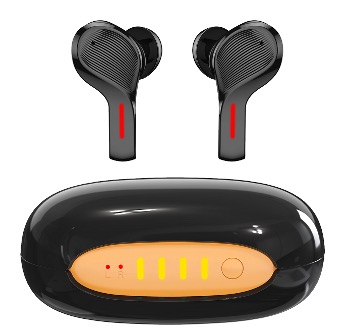In this article, we delve into how Bluetooth earphones have dramatically transformed hands-free calling, making communication easier and clearer. This post is crucial for readers eager to understand the latest earphone technology and its potential to improve their everyday lives.
We’ll explore the evolution of earphones, various earphone components, and a range of activities made more convenient with Bluetooth earphones, along with vital statistics and information to provide a comprehensive understanding of this technology.
The Evolution of Earphones: A Glimpse into the Past and Present
Earphones have come a long way, evolving from basic wired earbuds to today’s cutting-edge Bluetooth earphones. Traditional earphones were cumbersome and wired, leading to tangled cords and inconvenience. However, the introduction of Bluetooth technology ushered in wireless earphones, enabling users to enjoy hands-free calls and a superior listening experience.
Current Bluetooth earphones boast advanced features like noise-canceling technology, extended battery life, and improved audio quality, making them indispensable in today’s fast-paced world of wireless. In fact, the global Bluetooth headphone market is projected to reach $120 billion by 2026, highlighting their increasing popularity and demand.
Key Components of Bluetooth Earphones
Bluetooth earphones comprise various components that collaborate to offer a seamless hands-free calling experience. These primary components include:
- Earbuds: The speakers inserted into your ears, responsible for audio output.
- Microphone: A tiny component that captures your voice during calls, enabling hands-free communication.
- Bluetooth Chip: This chip wirelessly connects the earphones to your device, facilitating smooth audio transmission.
- Battery: Powers the earphones, ensuring they last throughout the day.
- Control Module: Contains buttons and controls for adjusting volume, answering calls, and navigating your music playlist.
Activities Enhanced by Bluetooth Earphones
Bluetooth earphones have made several activities more comfortable and enjoyable, such as:
Commuting: Listen to music or podcasts without tangled wires and answer calls on the move.
Exercising: Workout unrestricted by wires and stay motivated with your favorite tunes. In a 2020 survey, 49% of respondents stated that they use wireless headphones during exercise.
Cooking: Keep your hands free to cook while following recipe instructions or watching video tutorials.
Working: Attend conference calls or listen to music without disturbing your colleagues. A 2021 study found that 42% of remote workers use headphones to enhance focus and productivity.
Gaming: Experience immersive audio and wirelessly communicate with teammates.
Audio Clarity: The Key to Effective Hands-free Calls
Clear audio is vital for efficient communication during hands-free calls. Modern Bluetooth earphones feature noise-canceling technology that filters out background noise, ensuring your voice is heard clearly on the other end.
This not only enhances call quality but also helps minimize misunderstandings and miscommunications. High-quality Bluetooth earphones also deliver crisp and clear audio output, making it effortless to comprehend the person you’re speaking to.
Conclusion
From their humble beginnings to their current advanced state, Bluetooth earphones have significantly changed the listening experience for countless individuals. Boasting advanced features like noise-canceling technology and superior audio quality, Bluetooth earphones have made hands-free calls easier and clearer than ever. Activities such as commuting, exercising, working, and gaming have all been made more convenient and enjoyable with Bluetooth earphones.
By comprehending the different earphone components and their individual roles, we can better appreciate the convenience and functionality of these modern devices. As we continue to embrace an increasingly connected world, Bluetooth earphones have emerged as an essential tool for maintaining crystal-clear communication while staying hands-free.


